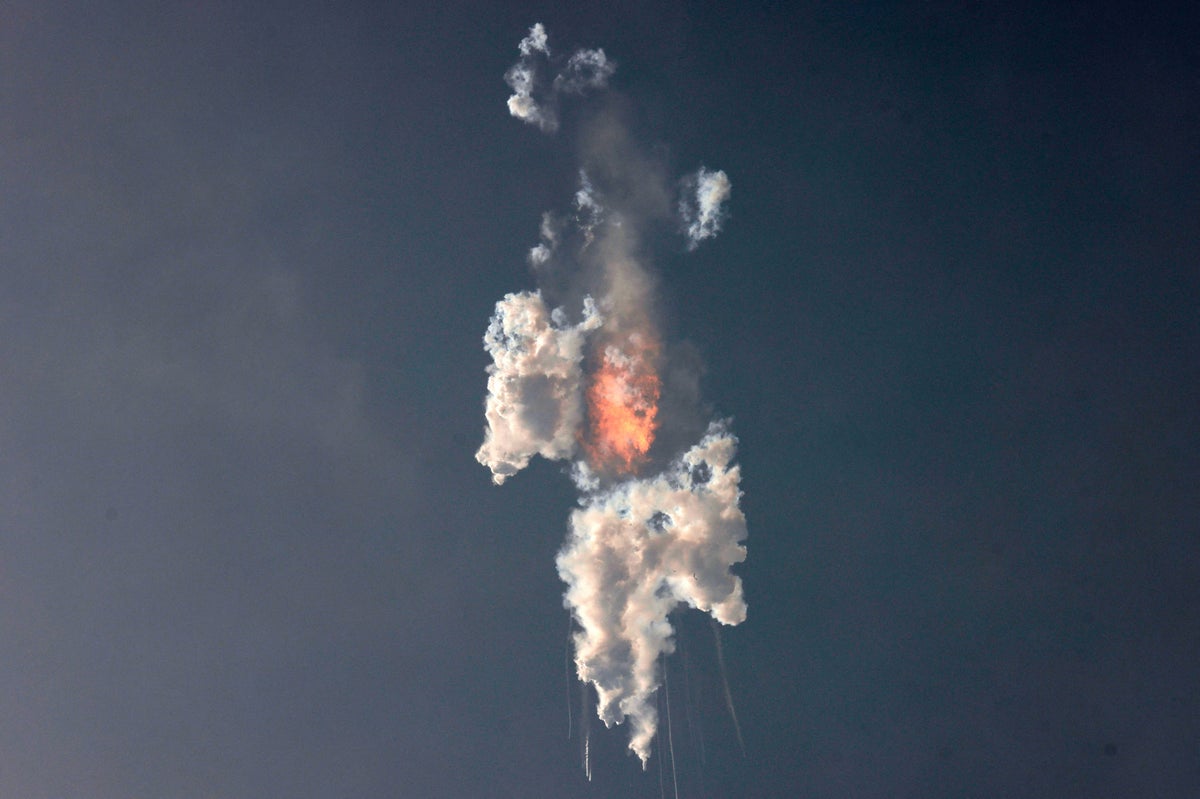
Residents in Port Isabel, Texas, felt the effects of SpaceX's Starship following its highly publicised test launch and subsequent explosion, when sand dust coated the city.
The rocket launch was nearly five miles away, but that distance did not spare cars and homes from being covered in a thin layer of dust after blast-off.
"Cameron County Emergency Management Division has confirmed that the dust that fell this morning in Port Isabel was sand and soil from near the Space X launch site that was lofted into the air by the force of lift-off," the city confirmed.
Residents shared photos on social media of the dust and other "particulates" covering their homes following the launch.
The rocket's flight was streamed online and viewed in-person by a crowd at SpaceX's Boca Chica launch site near Brownsville, Texas. Cheers erupted from the audience as the rocket soared into the sky, but those cheers turned to surprise when the rocket began tumbling back to the ground before exploding in a fireball.
An official at an elementary school in Port Isabel said the ash covered cars in the city, according to Insider.
"When the rocket launched, after it exploded, all the vehicles got a whole bunch of ash on them. Inside the school, we didn't get anything," she said. "It was just the outside."
The school official said the explosion rattled doors in Port Isabel enough that they worried they might break.
Christopher Hooks, a journalist based in Austin, pointed out that SpaceX’s launch facility was built in a migratory bird nesting area while commenting on photos of the particulate fallout.
“SpaceX elected to build this launch site in the middle of a one-of-its-kind preserve for migratory sea birds, some of which travel thousands of miles to lay eggs there,” he wrote.
The explosion became a trending topic on Twitter, where users poked fun at SpaceX's corporate-ese explanation for the explosion. According to SpaceX, the rocket underwent "rapid unscheduled disassembly," which means it blew up.
"The Hindenburg encountered a rapid unscheduled heating problem," NBC News report Ben Collins quipped.
The infamous airship explosion wasn't the only disaster the launch was compared to on Thursday.
"As if her maiden voyage was not exciting enough, RMS Titanic experienced a rapid unscheduled disassembly before arrival," comedian Janel Comeau wrote.
Despite the explosion, SpaceX still counted the launch as a win. The test flight's primary goal was to see if the rocket would actually take off and maintain flight, which it did for approximately four minutes before it tumbled and exploded.
Daniel Dumbacher, executive director of the American Institute of Aeronautics and Astronautics, praised the flight and the company's decision to make the launch publicly accessible.
“They put them out there for everybody to see,” Mr Dumbacher told The New York Times. “And that’s great. In fact, I applaud them for that because it demonstrated how hard some of this stuff is.”
Mr Collins was less charitable in his view of the launch.
"I cannot believe how many people are falling for 'we wanted the rocket to explode actually!'" he wrote. "I realize we are on the app that [SpaceX and Twitter CEO Elon Musk] spent $44 billion to turn into his fan zine, but come on!"







